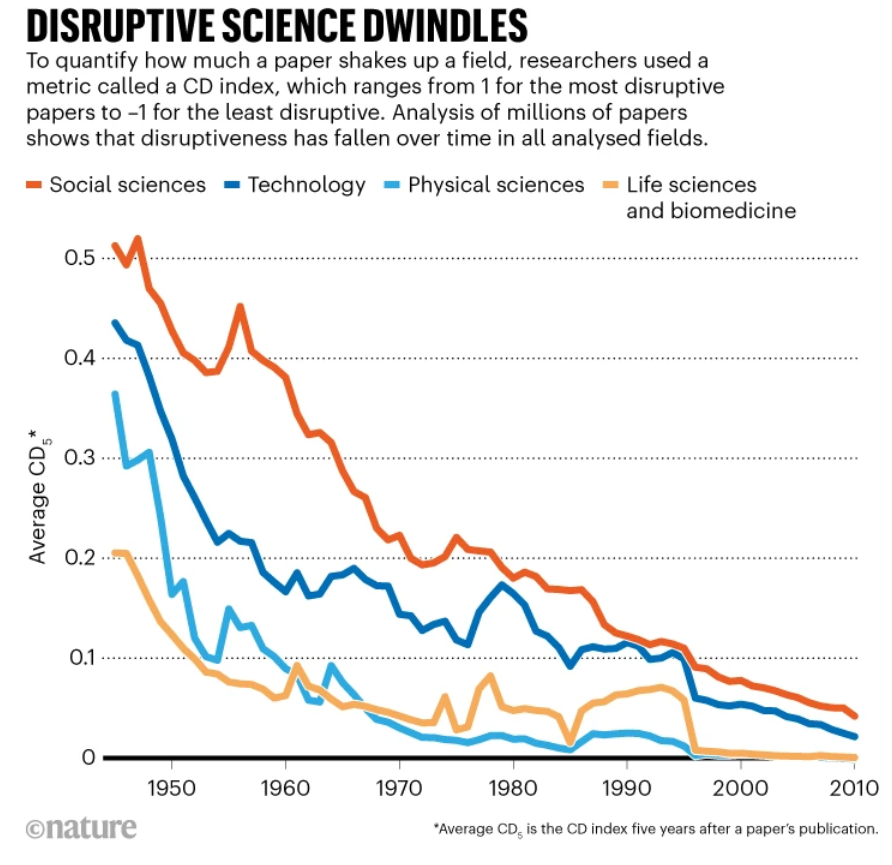Why it matters: Is science better when it disrupts or when there are just incremental improvements to previous knowledge? The topic was analyzed in a recent study, and it seems that researchers have spent these past years improving things rather than trying to revolutionize everything.

According to a study by Russell Funk, a sociologist at the University of Minnesota in Minneapolis, data suggests that the level of "disruptiveness" in scientific research has gone way down in the 2000s compared to the last half-century.
Funk and colleagues focused on citation data taken from 45 million manuscripts and 3.9 million patents that were published between 1976 and 2010. If a study was highly disruptive, the authors said, subsequent research would be less likely to cite the study's references as they would just cite the study itself.
The researchers used citation data to calculate a new measure of disruptiveness, which they named "CD index," with values ranging from -1 (the least disruptive work) to 1 (most disruptive). The study claims that the average CD index suffered a sharp decline of more than 90% between 1945 and 2010, and more than 78% between 1980 and 2010.
The study takes the potential differences in citation practices and other factors existing among different research fields and patent types into account, highlighting how the apparent decline in disruptiveness seems to involve every kind of research and scientific work.

The study also took into account the most common verbs used in manuscripts, uncovering how words which evoke creation or fundamental discovery ("produce," "determine," etc.) were more likely used in the 1950s than in the 2010s. In recent years, researchers preferred words highlighting incremental progress like "improve" or "enhance."
Previous studies already suggested that scientific innovation has slowed in recent decades, but the new work by Funk and colleagues follows a data-driven approach while looking at the trend. Yian Yin, a computational social scientist at Northwestern University in Evanston, Illinois, highlights how disruptiveness is not inherently good, and incremental science is not necessarily bad.
Yin cites the first direct observation of gravitational waves, a landmark discovery that was both revolutionary and the product of incremental science. Ideally, a "healthy" scientific progress would provide a mix of both incremental and disruptive research. John Walsh, a specialist in science and technology policy at the Georgia Institute of Technology, Atlanta, said that "in a world where we're concerned with the validity of findings, it might be a good thing to have more replication and reproduction."
As for the reasons behind the decline in disruptive index in science research, the study doesn't offer definitive answers yet. Potential explanations include a much larger number of researchers working today compared to the 1940s, or larger research teams which are more common today and are more likely to produce incremental than disruptive science.
https://www.techspot.com/news/97174-science-isnt-disruptive-used-now-need-understand-why.html